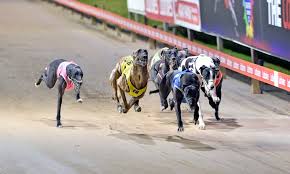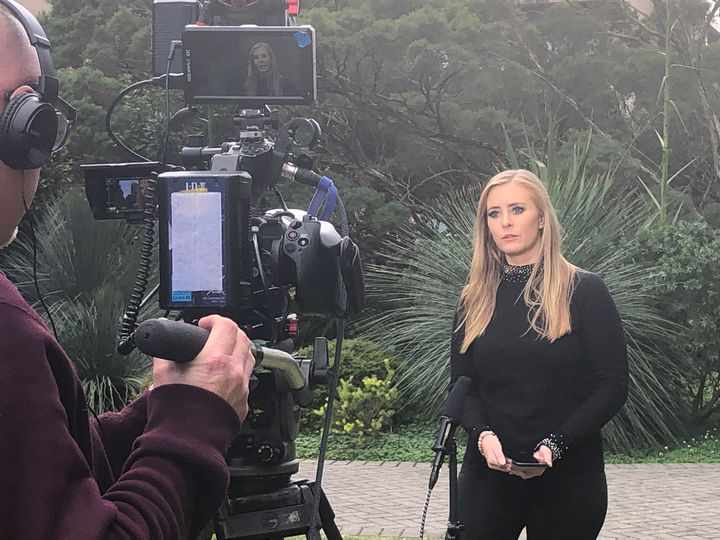The NSW greyhound racing industry is in turmoil again. Following a week of damaging allegations of animal abuse, the resignation of the Greyhound Racing NSW CEO, a promise internal review plus an independent government inquiry, many are again questioning whether the industry is sustainable.
We take a look at the latest controversy surrounding the NSW greyhound racing industry, as well as a timeline of its history.


Estimated reading time: 1 minute
Independent inquiry to investigate greyhound industry
An independent inquiry will look into the NSW greyhound racing industry, the announcement coming after a week of turmoil for the industry that included damning reports of animal abuse and the resignation of the CEO.
The NSW Government today announced it has established the inquiry to investigate the governance and operations of Greyhound Racing NSW (GRNSW).
Led by the Greyhound Welfare Integrity Commission (GWIC) – with acting commissioner Lea Drake appointed to head it – the inquiry was announced following the resignation of GRNSW CEO Rob Macaulay.
Macauley’s departure follows a damning report by NSW’s former Greyhound Racing chief vet, Dr Alex Brittan which included his opinion that the industry is “unsustainable”.
“I am absolutely committed to ensuring a competitive, responsible and sustainable greyhound racing industry, with the highest standards of animal welfare and integrity,” says Minister for Gaming and Racing, David Harris.
“It is important that the governing bodies and senior leadership of the racing codes meet these standards.”
Drake, a respected investigator, has been asked to deliver her findings by December 2024.
Allegations of widespread animal abuse: the letter that led to the resignation and inquiry
Dr Brittan’s “handover letter” to GRNSW highlighted multiple critical issues and denounced the industry as “unsustainable”.
The letter was 54 pages long and included allegations of inadequate welfare standards, widespread animal abuse, lack of proper governance, and frequent breaches of industry regulations.


Dr Brittan also criticised the industry’s breeding and adoption standards and record keeping, saying that adoption rates are exaggerated and issues surrounding greyhound breeding were resulting in problems rehoming dogs.
“Until the existing backlog of un-rehomed greyhounds is acknowledged and addressed, it is utterly immoral to allow yet more greyhounds to enter this unsustainable morass of exploitation and suffering,” Dr Brittan wrote.
Although the letter was given to GRNSW weeks ago, it was only made public yesterday after Animal Justice Party MP Emma Hurst ordered it be tabled through parliamentary process.
“The report makes shocking claims about the number of greyhound deaths, failures in the industry’s rehoming program, major failures in animal welfare, and illegal use of restricted veterinary drugs,” Hurst wrote on social media.
“There are accusations about incompetent vets on site at greyhound meets, known vets who put down greyhounds en masse, and various recommendations to improve welfare and reduce deaths that appear to have been ignored.”


Former police commissioner to lead review into Dr Brittan’s findings
In a statement about the resignation of Macauley, GRNSW announced the appointment of former Victorian Police Commissioner Graham Ashton AM to conduct an independent review of Dr Brittan’s findings.
“Mr Ashton established Victoria Police’s Sporting Integrity Unit a decade ago and last year completed an inquiry into the South Australian greyhound racing industry that was commissioned by the Government.
“That is a demonstration of how serious we are about ensuring the matters raised by Dr Brittan are thoroughly investigated.


“In addition to investigating specific claims, Mr Ashton has the power to evaluate best practice standards relating to the welfare of greyhounds within the Greyhounds As Pets NSW program and make any relevant recommendations.”
Future of the NSW greyhound industry
The announcement of an independent inquiry has led to mixed reports amongst government, animal welfare organisations, and the general public.
Wayne Billett, Acting CEO of GRNSW, welcomed the inquiry, saying he “looked forward to the external examination of our processes and record.”
“This is an opportunity to demonstrate the progress we have made in recent years towards modernisation and improved welfare standards.”
However, the Animal Justice Party have long been vocal critics of the industry’s practices and are not so sure it will solve anything.
“The resignation of the CEO and the findings of Dr. Brittan’s report are indicative of deep-rooted issues within the industry. This inquiry must lead to substantive changes, not just superficial fixes.”
The spotlight is now firmly on GRNSW and the NSW Government to deliver on their promises to reform the greyhound racing industry.
But while they both promise the future of greyhound racing will uphold welfare and integrity standards, many are questioning whether there can, or should, even be a future, saying the industry is not able to ever achieve ethical and sustainable practices.
A history of controversy: NSW greyhound industry
- 2015 scandal: Revelations of live baiting practices, where live animals were used to train greyhounds put the industry under intense spotlight. The scandal led to widespread public outrage and calls for stricter regulations.
- 2016 greyhound racing ban: In response to the live baiting scandal, NSW Premier Mike Baird announced a ban on greyhound racing in 2016.
- 2016 ban reversal: However, intense industry lobbying and promises of reform led to an overturn of the ban later that year.
- Ongoing issues: Despite the ban’s reversal, the industry has continued to face challenges, including allegations of doping, welfare breaches, and poor governance. These issues have led to continued scrutiny and calls for further reforms.
